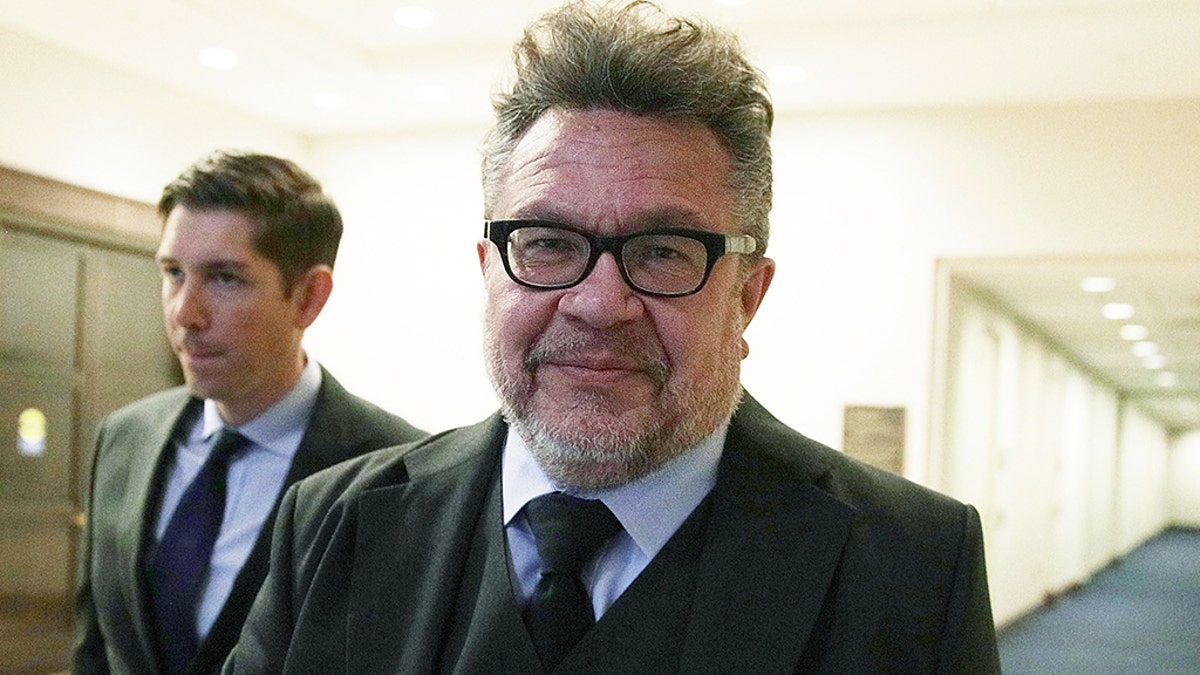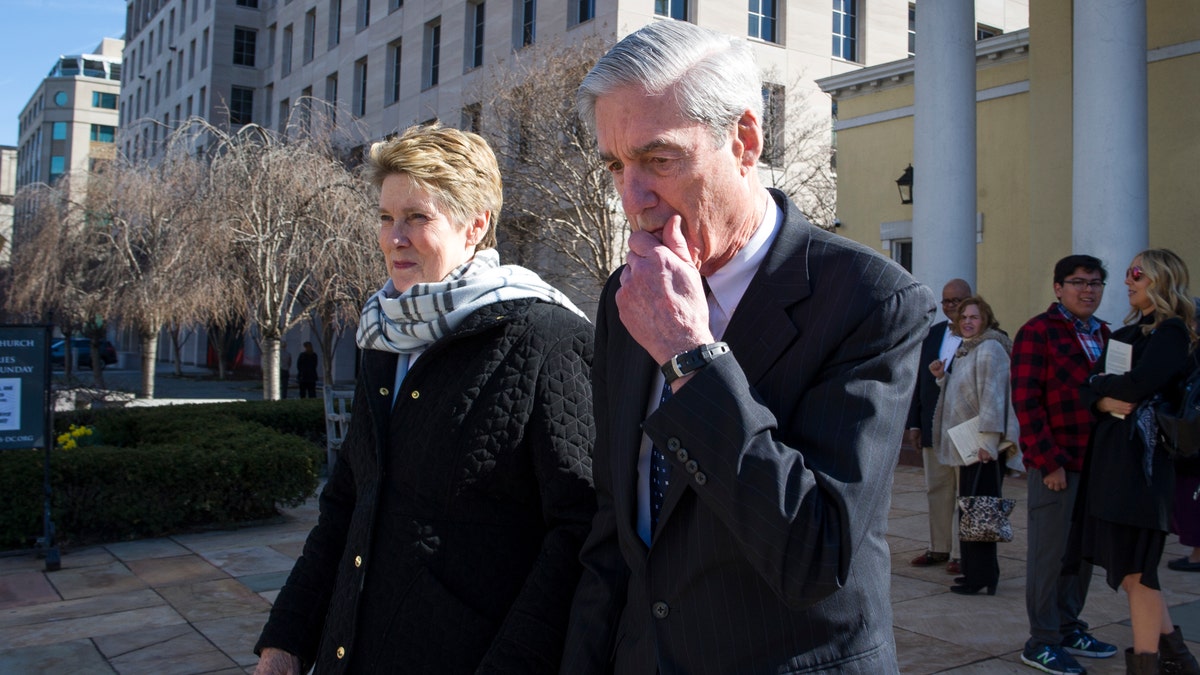
WASHINGTON, DC: Russian-American lobbyist Rinat Akhmetshin (R) arrives at the Capitol for a closed door meeting with the House Intelligence Committee November 13, 2017 in Washington, DC. (Photo by Alex Wong/Getty Images)
Russian-American lobbyist Rinat Akhmetshin, who attended a mysterious 2016 meeting between Russians and Donald Trump associates at Trump Tower, said Tuesday the Mueller investigation had taken a "very heavy toll" on him and his family but he nonetheless thought it was "thorough and fair."
“The Special Counsel investigation has taken a very heavy toll on me and my family. It hit me hard financially and has led to baseless personal attacks. As a result, my ability to earn a living has been impaired, my professional standing has been undermined, and my personal relationships have suffered,” he told Fox News in a statement. “To say nothing of the emotional toll on my family.”
Special counsel Robert Mueller’s investigation into alleged Russian interference during the 2016 presidential contest ended Friday and a summary said it concluded there was “no collusion” between Trump and Moscow, but did not determine whether or not there had been obstruction of justice.
ROGER STONE INVOKES 5TH AMENDMENT, REFUSES TO TURN OVER DOCUMENTS FOR TOP DEM'S PROBE
Even though the report itself has not been made public, there is much speculation as to what might be exposed about the much-hyped Trump Tower meeting, which came after music manager Rob Goldstone reached out to Donald Trump Jr. to set up the closed-door gathering, reportedly pledging damaging information on Hillary Clinton, along with discussions regarding the Magnitsky Act, which imposes sanctions on individuals and businesses accused of violating human rights.
Akhmetshin, a Russian-born, former Soviet military officer turned Washington lobbyist attended, along with Goldstone, Russian lawyer Natalia Veselnitskaya, Trump Jr., Trump son-in-law Jared Kushner and then-campaign chairman Paul Manafort.
Despite speculation that further criminal questions could arise, Akhmetshin insisted the investigation itself is a thing of the past.
“I am happy and relieved that it is over. I cooperated with the Special Counsel at every stage. I did everything they asked of me. I also voluntarily and without hesitation produced documents and gave testimony before multiple congressional committees,” he said. “At this point, it is safe to say that I have been exhaustively vetted by the most qualified law enforcement professionals in the country, if not the world.”
Akhmetshin went on to champion the ethics of the Special Counsel.
“Although the process has been an enormous distraction and financial burden, I have nothing but respect for the professional and courteous civil servants who treated me with fairness and dignity,” he continued. “They conducted a thorough and fair investigation and meant me no harm.”

Special Counsel Robert Mueller, and his wife, Ann, depart St. John's Episcopal Church, across from the White House, in Washington, Sunday, March 24, 2019. (AP Photo/Cliff Owen)
Nonetheless, his day in court is not over and he is instead taking aim at another noted figure.
“The lingering damage to my reputation comes not from the Special Counsel, or from any congressional investigator, but rather from William Browder,” he charged. “As soon as it became public that I had attended the 2016 Trump Tower meeting, Mr. Browder seized the opportunity to smear my name. Mr. Browder, not the Special Counsel’s investigation, falsely claimed that I was a Russian spy. That claim is categorically false.”
MOSCOW FEELS VINDICATED IN THE WAKE OF “NO COLLUSION”
Browder, a prominent investor whose firm once held the biggest foreign folio in Russia, was suddenly denied entry to the country in 2005 with the explanation he was a national security threat, although he argued it was due to his exposure of corruption.
After the 2009 death in a Russian prison, of his attorney, Sergei Magnitsky - who had allegedly been investigating a tax fraud and corruption scheme – Browder took matters into his own hands and launched a campaign to disclose Russian human rights abuses. This brought about the 2012 implementation of the Magnitsky Act, imposing sanctions on those individuals and businesses accused of violating human rights.
However, Akhmetshin has for several years sought to overturn the Act, contending that it was Browder who was involved in tax fraud. Since the Magnitsky Act was put in place, the Russian government has retaliated in various ways, including a halt to U.S citizens adopting Russian orphans.
“Why did Mr. Browder make this false accusation? I cannot think of any good reason, but assume he defamed me because I dared to question his version of events, to challenge the narrative that led to the passage of the Magnitsky Act. To be clear, I have never lobbied against the imposition of sanctions for human rights violators,” Akhmetshin said. “Those who commit crimes against human dignity should be brought to justice and punished. Rather, I lobbied against putting Sergei Magnitsky’s name on the sanctions law; I believe that Mr. Browder’s narrative cannot withstand serious scrutiny.”
Akhmetshin filed a $1 million civil case against Browder, one of Russian President Putin’s most outspoken critics, in a federal Washington court last July, accusing Browder of consistently defaming him with claims he was a Russian spy.
Browder did not immediately respond to a request for comment.




